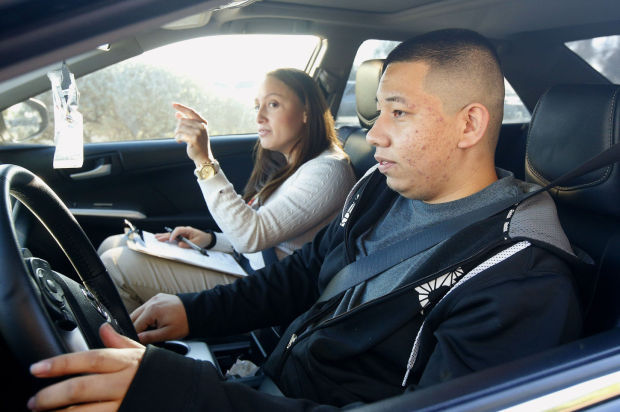PHOENIX — Immigrant rights groups are again suing Arizona over the state’s failure to provide driver’s licenses to some undocumented immigrants that the federal government says can remain and work in this country.
Legal papers filed in federal court here contend the state is ignoring prior court rulings that say that only the federal government can decide who is entitled to be in this country. It asks U.S. District Judge John Tucci to order the state Department of Transportation to issue licenses to any and all individuals who have “deferred action” status from the Department of Homeland Security, people not covered by earlier court rulings.
Attorney Karen Tumlin of the National Immigration Law Center, said these individuals on whose behalf the lawsuit was filed were “thrown under the bus” by the state in an unsuccessful effort to win the earlier lawsuit.
The original case involved those in the Obama administration’s Deferred Action for Childhood Arrivals program.
That 2012 directive allows those who arrived in this country illegally as children, so-called “dreamers,” to remain if they meet certain other qualifications. They also are entitled to federal Employment Authorization Documents entitling them to work.
But just days before the Department of Homeland Security began taking applications, then-Gov. Jan Brewer issued an executive order directing ADOT not to issue licenses to DACA recipients.
She cited a 1996 state law that says licenses are available only to those whose presence in this country is “authorized by federal law.” And Brewer said Obama’s order did not qualify.
As it turned out, even after Brewer’s order ADOT was still issuing licenses to those in other deferred action programs. That includes victims of domestic violence, those with pending visa applications and those who are allowed to stay for humanitarian reasons.
Challengers seized on that to charge the state was violating constitutional prohibitions against unequal treatment. So the state, in an effort to undermine that argument, amended its policy to stop issuing licenses to those in other categories.
The 9th Circuit has now twice ruled that Arizona cannot deny licenses to dreamers. In the most recent decision, Judge Harry Pregerson, writing for the unanimous three-judge panel, said the 2012 was motivated by “a dogged animus” against dreamers.
“The Constitution’s guarantee of equality must at the very least mean a bare desire to harm a politically unpopular group cannot justify disparate treatment of that group,” Pregerson said.
But because those in other deferred action programs were not plaintiffs in the earlier lawsuit, they are not covered by the ruling. And ADOT is still turning down their applications for licenses.
Tumlin said that’s wrong, both legally and ethically.
“The folks that we filed this lawsuit on behalf of are the individuals who were really thrown under the bus by the policy change after the original lawsuit,” she said. And Tumlin pointed out the earlier federal court rulings that the state cannot determine who is here legally and, by extension, who is entitled to a license.
“Obviously, that logic applies equally to folks like our plaintiffs who also have deferred action (status) the federal government has said who are authorized,” she said. “The answer to being told by a court that you’re discriminating is never to discriminate more.”
A spokesman for Gov. Doug Ducey, who inherited — and has continued to enforce — the policy had no immediate comment on the new litigation.
Among those named as plaintiffs in the lawsuit are a woman who was granted permission to stay because her young immigrant daughter has spina bifida, a woman awaiting a visa after agreeing to assist law enforcement officials in prosecuting her abuser, and a man whose mother is a survivor of domestic violence who herself qualified for relief under the federal Violence Against Women Act.
Tumlin said she has no idea how many others in similar categories have been prevented from getting licenses.
“But even one discriminatory denial is one too many,” she said.





